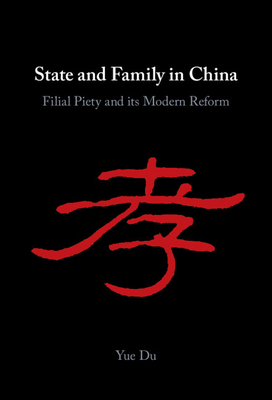State and Family in China

State and Family in China
In Imperial China, the idea of filial piety not only shaped family relations but was also the official ideology by which Qing China was governed. In State and Family in China, Yue Du examines the relationship between politics and intergenerational family relations in China from the Qing period to 1949, focusing on changes in family law, parent-child relationships, and the changing nature of the Chinese state during this period. This book highlights how the Qing dynasty treated the state-sponsored parent-child hierarchy as the axis around which Chinese family and political power relations were constructed and maintained. It shows how following the fall of the Qing in 1911, reform of filial piety law in the Republic of China became the basis of state-directed family reform, playing a central role in China's transition from empire to nation-state.
PRP: 878.25 Lei
Acesta este Pretul Recomandat de Producator. Pretul de vanzare al produsului este afisat mai jos.
790.42Lei
790.42Lei
878.25 LeiLivrare in 2-4 saptamani
Descrierea produsului
In Imperial China, the idea of filial piety not only shaped family relations but was also the official ideology by which Qing China was governed. In State and Family in China, Yue Du examines the relationship between politics and intergenerational family relations in China from the Qing period to 1949, focusing on changes in family law, parent-child relationships, and the changing nature of the Chinese state during this period. This book highlights how the Qing dynasty treated the state-sponsored parent-child hierarchy as the axis around which Chinese family and political power relations were constructed and maintained. It shows how following the fall of the Qing in 1911, reform of filial piety law in the Republic of China became the basis of state-directed family reform, playing a central role in China's transition from empire to nation-state.
Detaliile produsului









